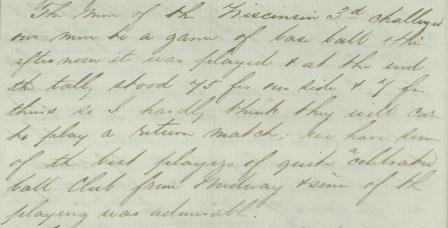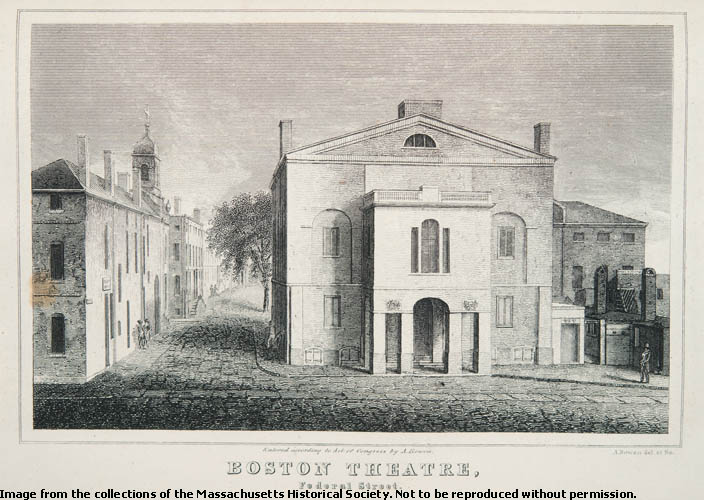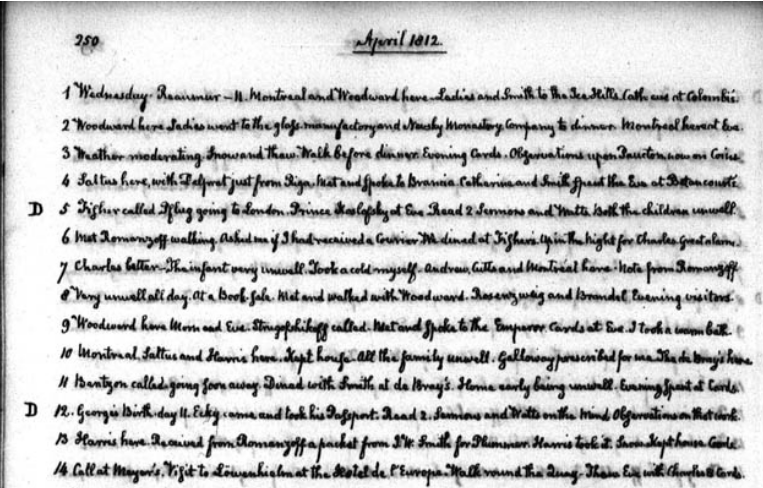By Elaine Grublin
The Boston Red Sox meet the Detroit Tigers today in the first regular season game of the 2012 season. The arrival of baseball season is always a welcome treat in Boston. Getting myself into a baseball frame of mind, my thoughts wandered to a letter one of our volunteers, Joan, had shown to me several months ago. I know I love the distraction of baseball, a game that is simultaneously exciting and relaxing, but until I saw that letter I had not known that baseball was also a welcome distraction for soldiers during the American Civil War.

In this 3 May 1862 letter Captain Richard Cary of the 2nd Massachusetts Volunteer Infantry Regiment describes for his wife a game played between men from the 2nd and men from the 3rd Wisconsin Volunteer Infantry. The text reads:
The men of the Wisconsin 3d challenged our men to a game of base ball & this afternoon it was played & at the end the tally stood 75 for our side & 7 for theirs so I hardly think they will care to play a return match; we have some of the best players of quite a celebrated ball club from Medway & some of the playing was admirable.
The men of the 2nd might have had an advantage, as Cary indicates there were baseball clubs in Massachusetts and some of the men were experienced players. I am not certain how familiar the Wisconsin men would have been with the game — and if the Massachusetts regiment was playing by the rules of the Massachusetts Game (common in the mid-19th century) the Wisconsin team may have been more familiar with a different set of rules.
As a final thought, wouldn’t it be splendid if another Massachusetts/Wisconsin match-up brought similar results? A Red Sox 75, Brewers 7 score the final game of the World Series sounds pretty good to me.



